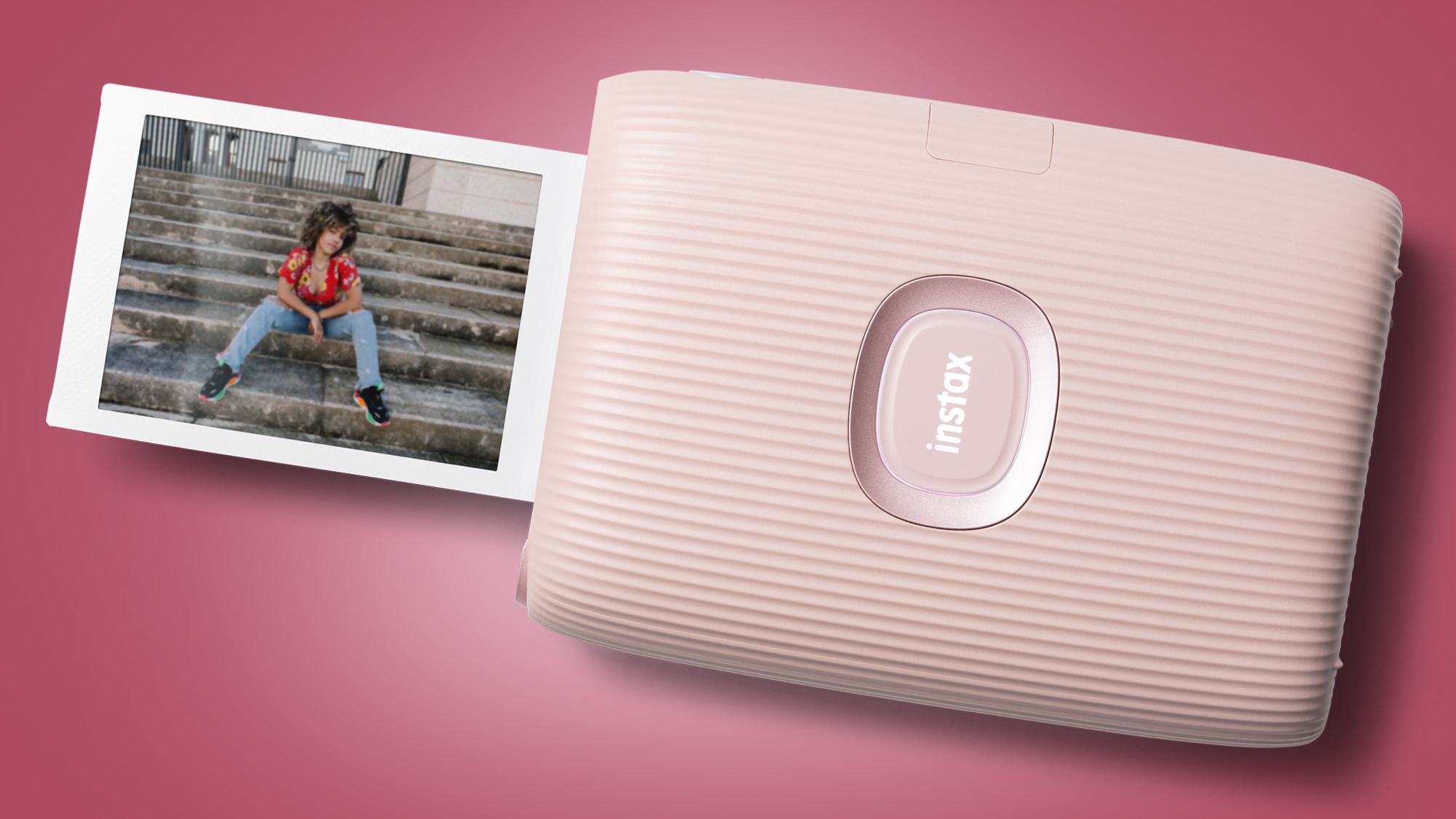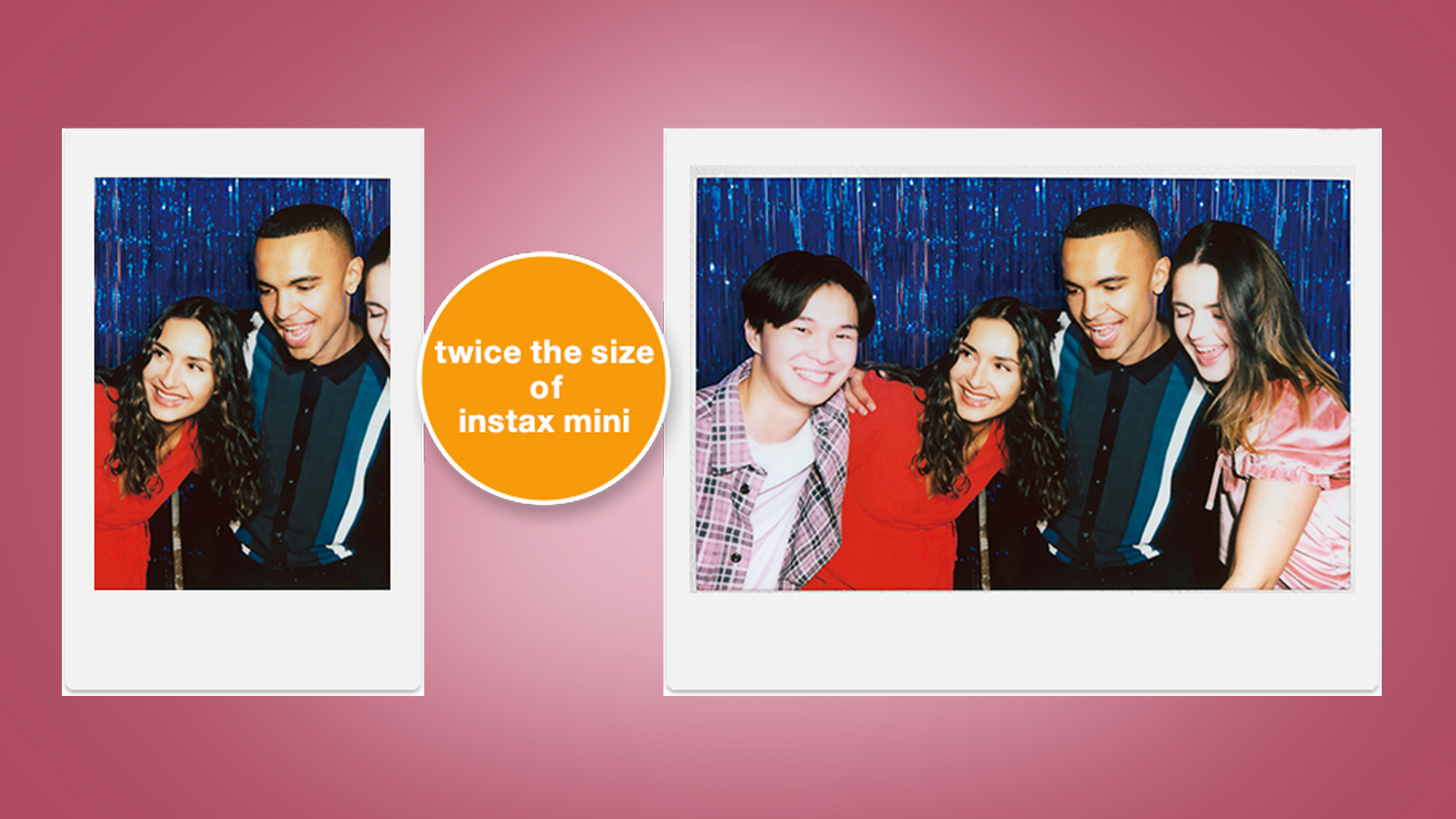The new Instax Mini smartphone printer is no match for its bigger brother
New tricks can't outshine its Instax Wide sibling

Fujifilm's Instax printers have long been a popular way to turn your phone snaps into analogue prints – and the new Instax Mini Link 2 is aiming to crank the fun up to eleven with some new tricks.
Like the original Instax Mini Link, the new printer connects to your phone via Bluetooth and, once you've chosen a snap in the companion app, will print out a little physical version in around 15 seconds. From there, it's just a case of waiting 90 seconds or so for the credit card-sized snap to develop,
But with the Link 2, Fujifilm has tried to bring some innovation to the table with some new features, which sound intriguing if a little gimmicky. The main one is instaxAir, which is a little like light-painting – you point the printer's LED towards your phone and wave it around to draw shapes in the air. These shapes will then be overlaid on your digital snap, which can then be printed out.
Perhaps more useful are the app's customization features, which let you design image frames and stickers, while also picking filters to amp up your photos' look. There's a 'Rich Mode' for deep, contrasty colors and a 'Natural Mode' for a more standard look.

On the downside, the Instax Mini Link 2 – which is available in pink, white or dark blue – hasn't innovated quite as much in other areas. The printer still powered via a microUSB port, and if you want to print directly from a Fujifilm camera this is also still only possible on Fujifilm X-S10. Hopefully Fujifilm will bring this handy feature to more of its Bluetooth-equipped cameras in the future.
You can pre-order the Fujifilm Instax Mini Link 2 now for $99 / £115 / $179 ahead of availability from June 22 in the US and UK (or July 28 in Australia), although this doesn't include any Instax Mini film. And the small size of this film (which measures 54mm x 86mm) is arguably the Mini Link 2's main weakness, considering the recent arrival of the Instax Link Wide – which prints out photos that are twice as big.
Analysis: Bigger is now better for Instax

As you can see above, Instax Wide prints are twice the size of the Instax Mini ones created by the Instax Mini Link 2 – and that's arguably a good reason to go for the Fujifilm's new Instax Wide printer over this new one.
Get daily insight, inspiration and deals in your inbox
Sign up for breaking news, reviews, opinion, top tech deals, and more.
We're still big fans of cameras like the Instax Mini 11, which tops our guide to the best instant cameras. But the long-awaited arrival of a printer that supports Fuji's largest Instax format makes it harder to go back to the Mini format, particularly considering the quality of the snaps you'll be printing from either your phone or a camera.
The Mini format is clearly designed for a younger audience, as shown by some of the new photo customization features on the Mini Link 2. But a pack of Instax Wide film also isn't much more expensive than Instax Mini – for example, a 20-pack of Instax Mini costs $14 / £14.99 / AU$34, compared to the $22 / £16.99 / AU$39 you'll pay for Instax Wide.
Granted, the 'Wide' format doesn't offer quite the variety of film styles you get with Mini, but if that isn't important to you we reckon the Instax Wide printer is shaping up to be a better choice than its albeit charming new Mini Link 2 sibling.

Mark is TechRadar's Senior news editor. Having worked in tech journalism for a ludicrous 17 years, Mark is now attempting to break the world record for the number of camera bags hoarded by one person. He was previously Cameras Editor at both TechRadar and Trusted Reviews, Acting editor on Stuff.tv, as well as Features editor and Reviews editor on Stuff magazine. As a freelancer, he's contributed to titles including The Sunday Times, FourFourTwo and Arena. And in a former life, he also won The Daily Telegraph's Young Sportswriter of the Year. But that was before he discovered the strange joys of getting up at 4am for a photo shoot in London's Square Mile.